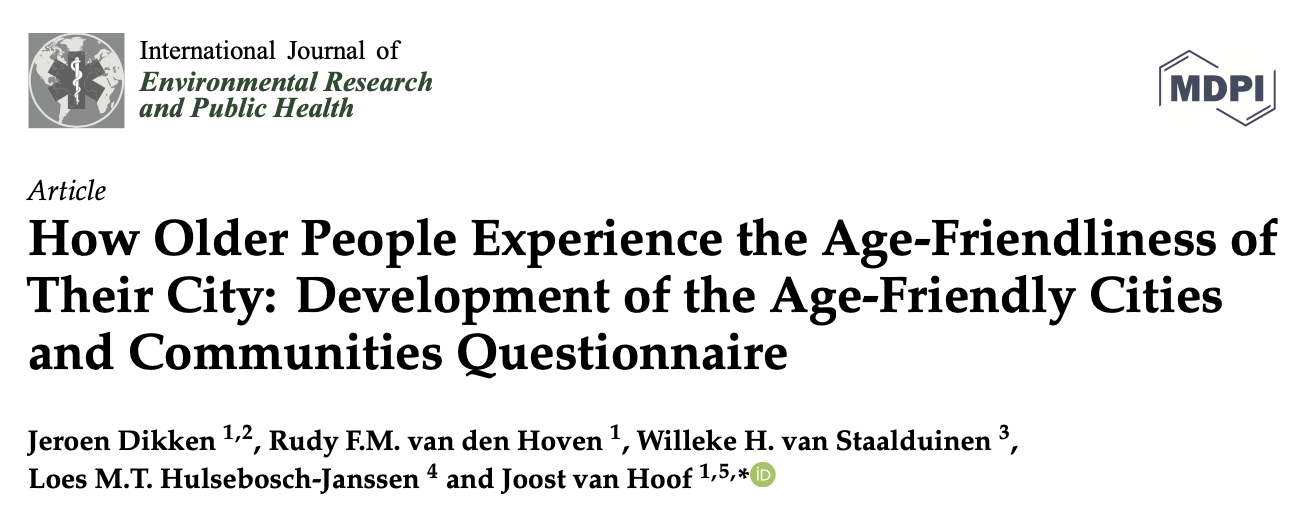
The World Health Organization engages cities and communities all over the world in becoming age-friendly. There is a need for assessing the age-friendliness of cities and communities by means of a transparently constructed and validated tool which measures the construct as a whole. The aim of this study was to develop a questionnaire measuring age-friendliness, providing full transparency and reproducibility. The development and validation of the Age Friendly Cities and Communities Questionnaire (AFCCQ) followed the criteria of the COnsensus-based Standards for selection of health Measurement INstruments (COSMIN). Four phases were followed: (1) development of the conceptual model, themes and items; (2) initial (qualitative) validation; (3) psychometric validation, and (4) translating the instrument using the forward-backward translation method. This rigorous process of development and validation resulted in a valid, psychometrically sound, comprehensive 23-item questionnaire. This questionnaire can be used to measure older people’s experiences regarding the eight domains of the WHO Age-Friendly Cities model, and an additional financial domain.
Read the full publication here.

